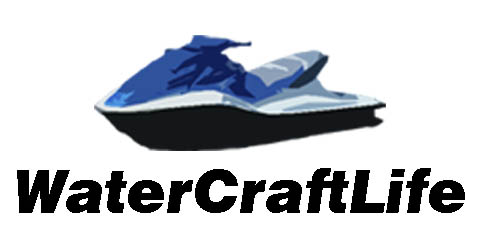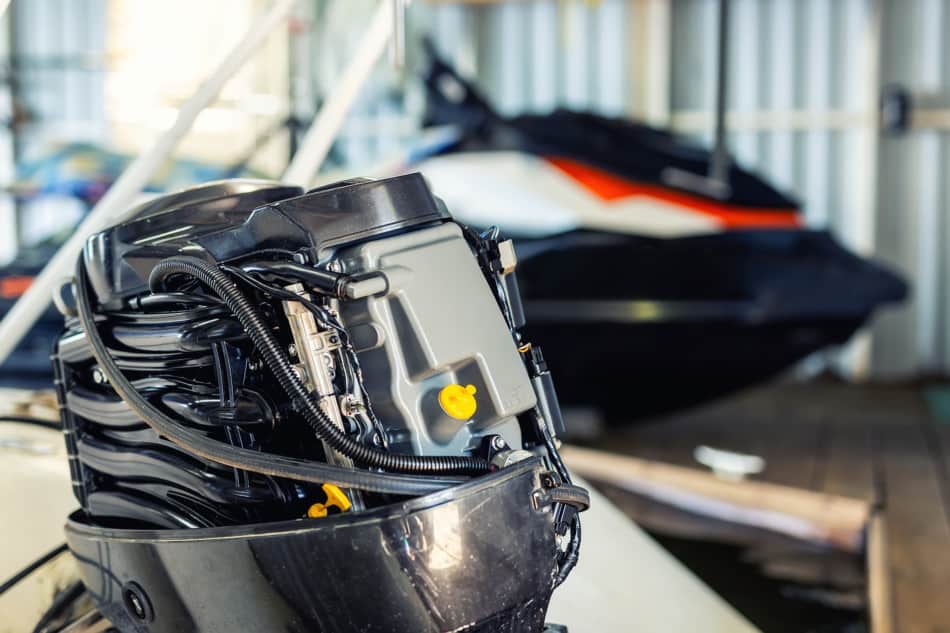Boats have their own type of starters that are similar to cars and trucks but are not interchangeable. Boat starters are made specially to protect against moisture and contaminants. They also protect against stray sparks that can cause explosions if they come into contact with the gas that can sometimes build up in the bilge pump. This means they have different lifespans and costs for replacement.
The total replacement cost for a starter for your boat engine will cost between $150-$500 and upwards of $1,000 if the engine is hard to get to. An OEM starter costs between $100-500 while an after-market costs $50-90. Labor costs vary, but most boaters report an average cost of $150-600.
Now, let’s look at other factors that will affect how much you pay for a starter, including how often you’ll need to replace it, whether or not the issue is with another part, and whether any problems arise during the replacement process.
How Much Do Marine Boat Starters Cost?
You can save a lot of money by replacing the boat starter on your own, which is discussed below. Other than that, expect to pay a mechanic around $80-150 per hour for labor. They will quote you a price based on how hard it is to get to your boat starter and how much the part costs. If your starter is very hard to reach, you may pay up to $1000 total for the replacement.
You can save a lot of money by buying a starter separately from another source. An aftermarket starter especially can save you a good amount of money. You can also use starters from different companies but only if the bolt holes are aligned. Combined with doing the job yourself, you may spend as little as $75 for the replacement.
To find the right price, get at least 3 quotes from different mechanics in your area. The quotes will not be exact like they are with car mechanics because boats have so many different types of builds and designs. Even if they see the boat in person, unless they’ve worked on that exact model before, they won’t know how long it takes to get to the engine until they’ve started the job.
Can I Replace a Boat Starter on my Own?
You can, of course, replace the starter in your boat yourself, which eliminates the labor cost for the job. It does take technical skill though, so make sure to be educated on how to do it before you attempt it. Boaters have reported taking anywhere from 40 minutes to 3 hours to replace the starter, which all depends on how hard it is to get to it.
Many people watch videos to learn how to replace the starter on their own, but this can prove to be daunting if it is very hard to get to the engine. If you are confident in your ability, then you are better off doing it yourself since it is a relatively easy job. If you aren’t confident, leave it to the experts so you don’t accidentally mess something up that would require you to do even more repairs.
How Long Do Boat Starters Last?
Boat starters can last as long as the engine of the boat, but this is not always the case. Many mechanics will ask you if you want them to check or replace the starter when they have the engine out of the boat to work on to avoid the high cost of labor it takes to remove the engine.
Generally, boat owners will replace the starter only when it fails. Some people change it every year. It all depends on how often you start the boat’s engine. A lot of starters come with warranties lasting from a year to a lifetime, so it is expected to last very long. Many boaters will only purchase starters with warranties to cover the cost of replacements in advance.
You can expect a boat starter to last anywhere from a couple of years to the entire lifetime of the boat. Just like cars, it’s one of those parts that either requires a lot of repairs and replacements or stays functional for a long time.
How Do I Know I Need a New Boat Starter?
Before deciding if you need a new boat starter, check the battery, wiring, and connections for faults. These might be the actual reasons your boat won’t start.
If that’s not the case, then the problem may be the starter. The most obvious indicator of a bad starter is that your boat won’t start and the starter is hot. You will also hear a noise instead of the engine turning over like clicking, buzzing, whirring, or grinding. Some of these noises are high-pitched.
Buzzing sounds indicate that the starter is not receiving enough electricity to engage the flywheel and start the engine, while grinding sounds most likely mean that the starter gear or the flywheel’s teeth are broken or worn down. Clicking sounds mean that the solenoid is being used but the starter motor has failed.
You can test your boat to see whether or not it needs a new starter by bypassing the solenoid power source that connects to the starter. Remove the red cable that connects the two and replace with booster cables. If the engine starts, your starter is in good working condition and the problem is with the solenoid. If it doesn’t, then you need to check your starter for damage and repair or replace it.
Other Issues That Can Drive Up the Cost of Replacement of your Boat Starter
There are several problems that you or mechanics might notice when replacing the starter that must be repaired before installing the new one. This includes replacing corroded wires, snapped bolts, stripped threads, and stuck nuts and bolts. The starter and some bolt heads may not even be accessible, which drives up the cost a lot more. Keep this in mind when you get your starter replaced so you aren’t surprised by extra problems that may occur when you or a mechanic replaces it.
To Conclude
As discussed before, you will most likely spend around a couple hundred dollars to replace the starter on your boat. You can, however, save a lot of money by buying an after-market starter and doing the replacement on your own, although doing it yourself takes technical skill. Some boaters have reported spending as little as $50 for starter replacements because they found discounted starters on eBay and replaced them on their own.
If you are having problems with starting your boat engine then you need to rule out the possibility of a dead battery, corroded wiring, or solenoid gone bad. All of these issues can be fixed a lot easier than replacing the starter, so check these things before unnecessarily spending money on labor and the replacement part.
As always, regular boat maintenance will keep a lot of these problems at bay and help you rule out which problems have kept your boat from starting. Test your starter regularly and replace it as soon as it becomes weak to avoid having your boating day ruined by an engine that won’t start.

